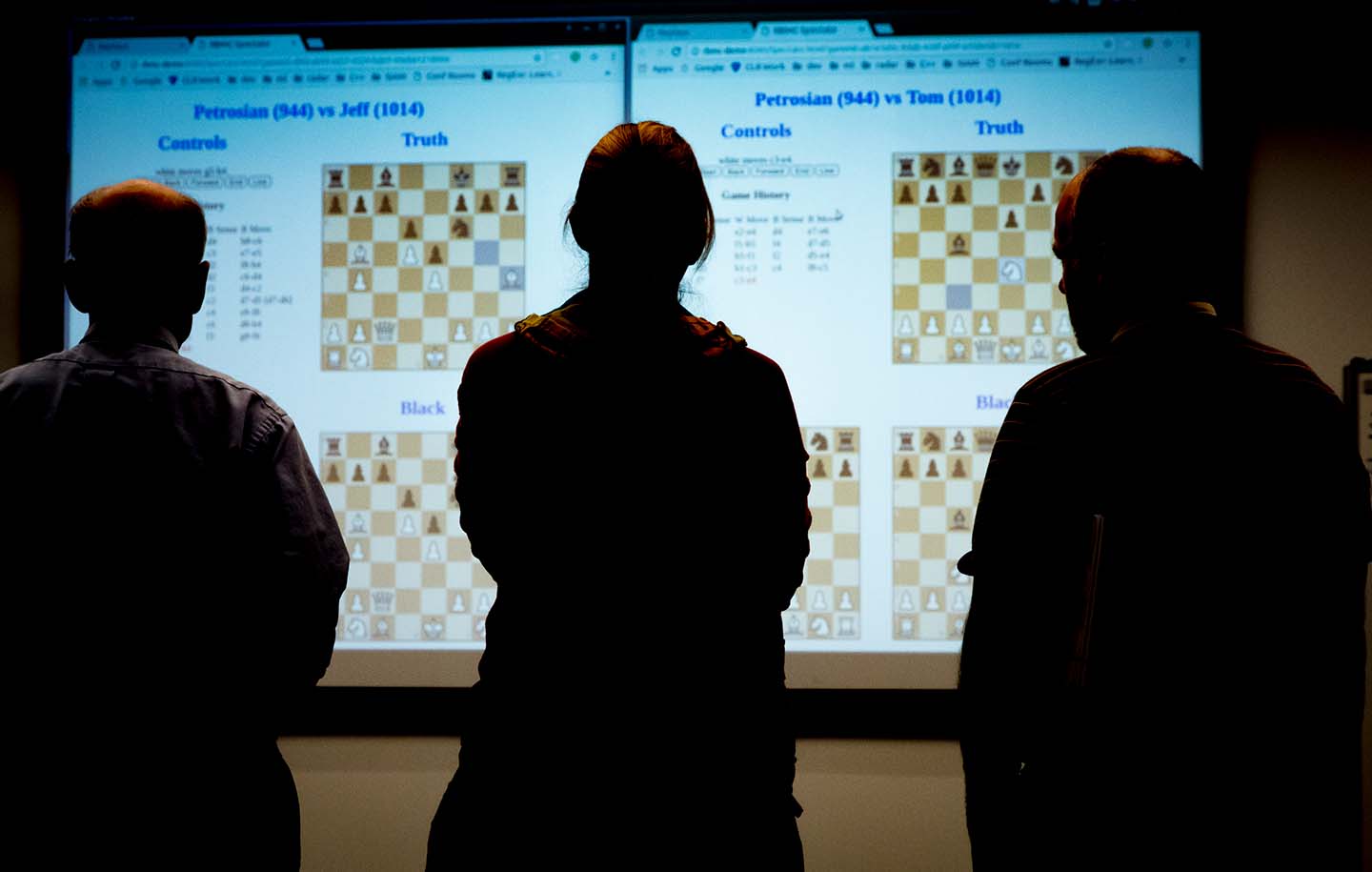Press Release
APL to Host AI Challenge for Making Optimal Decisions Under Uncertainty; Register by Aug. 6
Board games like checkers, chess and Go have long been seen as the perfect testbeds for artificial intelligence, but real life can be messier. “These games lack something that is extremely common and critical in real-life decision-making: uncertainty,” said Ryan Gardner, a computer scientist at the Johns Hopkins University Applied Physics Laboratory (APL), in Laurel, Maryland.
Reconnaissance blind chess (RBC), invented by APL researchers, is a powerful twist on chess that incorporates uncertainty and sensing: players cannot see the positions of their opponent’s pieces, except through private sensing actions. The Laboratory is chairing an RBC competition as part of the 33rd Conference on Neural Information Processing Systems (NeurIPS 2019), one of the top machine-learning conferences in the world.
“Compared to poker, which seems to be the most popularly studied game with imperfect information, RBC includes the additional challenge of long-term planning,” Gardner explained. “Compared to phantom games like Kriegspiel, in RBC, players have greater ability to manage their uncertainty over time, which we believe makes the game quite interesting from an AI perspective and brings it one step closer to real-world scenarios.”
All are welcome to participate in the competition, which starts Oct. 21. Participants do not need to attend the NeurIPS conference, and there is no cost to participate. The winner receives a $1,000 prize, and participants can play the game now.
To participate or experiment, obtain the RBC game and simple example bots by following APL’s Python package documentation: easy-to-use scripts to connect bots to the competition server. Participants interested in writing a bot in a language other than Python, or who prefer a lower level of control, can obtain HTTP RESTful API to interact with the competition server, and the Python implementation of a client can be used as a reference.
Participants need to register by Aug. 6. Two test tournaments will be held on Aug. 13 and Sept. 19 to check the infrastructure to ensure a smooth competition. The outcome and performance in the test tournaments do not affect the final competition. The final tournament begins Oct. 21 with the outcome presented during the competition workshop at NeurIPS 2019.
